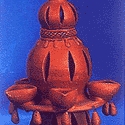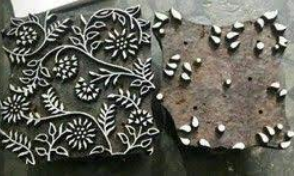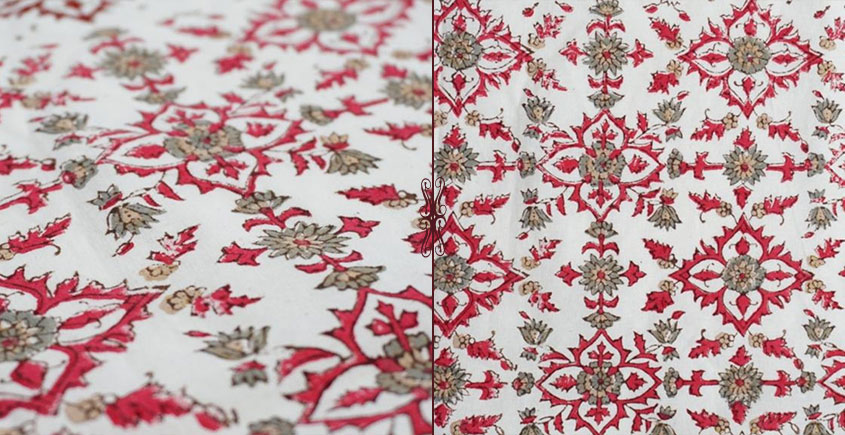As Chandigarh is a relatively new city devoid of a tradition of crafts, most of the craftsperson’s are from the urban community. Thus one can largely find studio potters and stained glass artisans, who are combining the traditional techniques with the contemporary or the East with the West to create pieces of art and utilitarian objects.
Terracotta and Clay work or Mitti da Kaam can be said to be one of the oldest and the most widespread handicrafts. Remains of the same have been found at the sites of the earliest civilisations. As a matter of fact archaeological digs in the Chandigarh area have yielded ancient Indus Valley Civilisation (c. 2500- 1700 BCE) artefacts, predominantly pottery.
For this craft the raw material is ordinary clay, derived from the local mud hills or the pahad. The clay is prepared and then wedged to remove impurities and air bubbles. It is then shaped either by hand, wheel or moulded into the desired shape. Then as per requirements, products are dried, fired and glazed. The clay or terracotta products are graded according to their colour, strength and water absorption capacity.
Urban kumhars can be found in colonies within the city, while communities of traditional kumhars can be found in villages around the city, for instance in Kishangarh, Saketri, Hallo Majra and Dadu Majra.
Gallery
YOUR VIEWS
PRACTITIONERS: INDIA
Access 70,000+ practitioners in 2500+ crafts across India.
BIBLIOGRAPHY
10,000+ listings on arts, crafts, design, heritage, culture etc.
GLOSSARY
Rich and often unfamiliar vocabulary of crafts and textiles.
SHOP at India InCH
Needs to be written.






